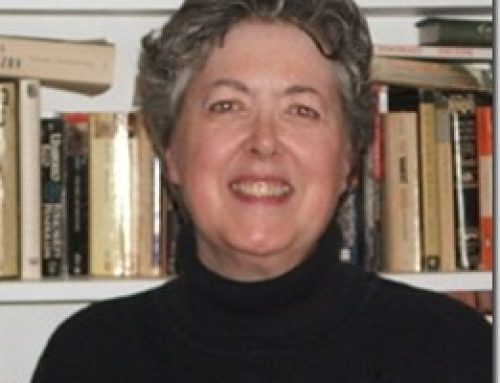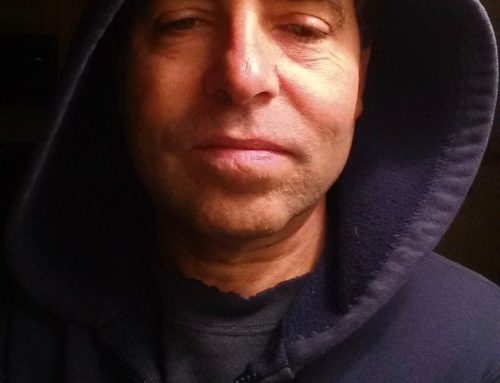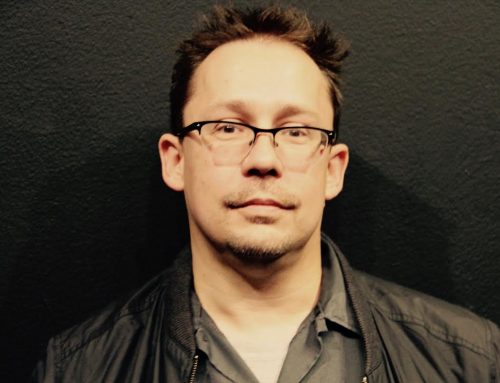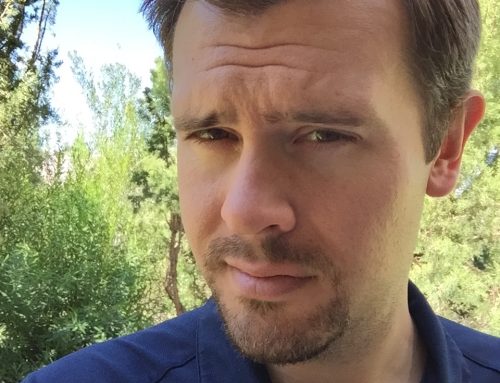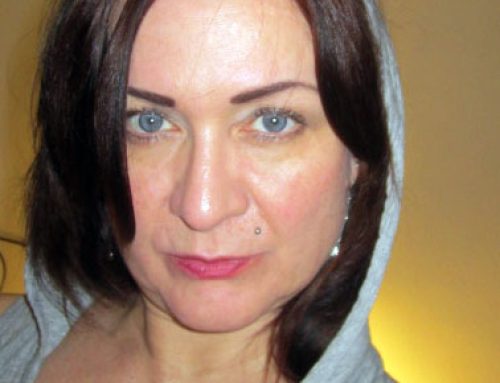Mother calls out for my oldest sister, Miranda. Her voice bleats into the sterile silence like a lost child, startled from a nightmare. Death is a nightmare . . . for my mother. An extraordinary and unexpected event. “How terrible . . . how could this possibly happen!” she would exclaim, each time someone strayed from the fold of the living.
The living are in the fold outside of the hospital’s ICU right now. As they go about their day-to-day business, most are completely unaware of the catastrophes, preoccupying those of us currently inside. Thick white drapes block the fold from seeing and also the summer sun from cheering on the dying. I wave my hand gently across my mother’s face, but her open eyes remain fixed on the ceiling.
*****
“Mommy, it’s me, Ginger. I love you.”
I stroke her hand to warm her translucent skin. It is chilling rapidly and looks pearlescent against her purple varicose veins. She hated her veins. I told her that she had hands of Creole marble. She loved Creole food, and she loved marble. Although, when it came to sculpting, only rose alabaster would do.
“Miranda,” she croaks again, “my princess.”
This time, her voice is barely audible, yet everyone present looks up and takes note of what she has said. Mother is oblivious to all of us. Her eyes look stagnant. Her faint breath rasps with irregularities. Mine catches with surprise.
The nurse’s hand touches my shoulder. “It won’t be long now,” she says.
My hands clutch the sodden tissues, tear-soaked and wadded with hours of grief.
“But my sister Miranda hasn’t come yet,” I say. “She begged us to buy her a ticket. She hasn’t seen Mother in years.”
Absently, I drop some wet tissues on the floor. The nurse instantly spots the offending litter and scoops it into a closed wastebasket. Embarrassed, I pretend not to notice. Everything here is so spotless and orderly, except death. Or maybe death is too, and I just don’t understand the cues.
“And your other siblings?” the nurse asks.
“They will come for the funeral,” I say.
She raises her eyebrows, but spares me further questions.
I do not tell her that they are afraid of death, repulsed by the sight of it. For them, death is also a catastrophe—an unexpected and extraordinary event. I was the only one who wanted to come. Until Miranda changed her mind.
“Miranda’s flight was due in last night,” I say. “I’ve left so many messages on Mother’s answering machine.” Then I have to bite my cheek to hold back another flood of tears.
“Can you pick her up? Your sister, can you get back here within the hour?” the nurse says.
I look away. “But I can’t leave my mother. Not now.”
The protocols of dying are much too efficient and streamlined for me. I want to sabotage them all. Doesn’t the nurse realize that this is my reward—for being the one who came, the one who arrived in time to help. The one who looked out for everything. Still, I know she heard—the nurse, that is. I know she heard Mother ask only for Miranda. Not for me, Ginger. Not for Rosa, Tanya or Eli—my other siblings. Not even for Jessie, the cat. Just for Miranda. I try to console myself that it is only unfinished business with Miranda.
“If you hurry, you can make it back in time,” the nurse says.
“But—” I stop myself.
What is the point of explaining? This woman spends her days watching and recording the minutiae of dying, the transparency of human life. Throughout each patient’s journey, she negotiates the practical needs of family and friends, as well as the volcanic eruptions, spewing and threatening to derail the main event—her patient’s death.
She must know a lot about life and people . . . I’ll give her that. But she doesn’t know my sister. Miranda flummoxes everyone.
“You should go quickly,” the nurse reminds me gently. Then she resumes scribbling on her chart.
I grab my backpack and run through the maze of sterile, fluorescent-lit hallways. All the way to the parking lot, my anger at Miranda reverberates off the sparkling, yellow tilework. I hurry to the safety of my car. There, inside, I can cry to my heart’s content.
Driving along beside Lake Ontario is cathartic. Watery images swim against the glittering azure water. Sunlight bursts on the rhythmically cresting waves. Mother loved the lake. She loved Southern Ontario in the summer. How can she possibly die on a day like today?
At home I unlock the door to Mother’s house, expecting Miranda to be waiting in the entry. But only absence is there to greet me. Absence and the sound of the kitchen clock ticking relentlessly into the void.
“Miranda?” I call out.
There is no reply. The silence is bleak. I step into the long hall, which connects to every room.
“Jessie? Jessie? Here, kitty kitty!”
Even Jessie fails to appear.
Then I spot Miranda through the door into the kitchen. She is staring out the window over the sink, either completely unaware of or ignoring my presence. I drop my backpack on the floor. Miranda still doesn’t move. I watch her bite into a clove of raw garlic. Its pungent odour permeates the stench of her stale cigarettes. Mother never allowed smoking inside her house. Now, here is Mother’s princess, a crown of smoke encircling her head. I cough to get her attention. Miranda finally turns towards me, takes a long drag and blows fresh smoke in the direction of my face. Her hand clutches a saucer, heaped with crushed cigarette butts. The dirty pile obscures the pattern on the plate.
“Miranda,” I say softly, trying not to startle her. “It’s me, Ginger.”
Miranda doesn’t speak. She chews garlic in between cigarette puffs.
“I can’t believe that it’s been fifteen years—fifteen years since we last saw each other,” I say.
Miranda doesn’t move.
She probably has cataracts now that obscure her vision. I decide to hug her, timing my approach between rounds of lengthy puffs. As I reach out and squeeze her rigid, boney frame to my ample girth, I spot a half-empty mickey of vodka, standing in the sink. I pull away and open the kitchen window.
“Don’t! It’s freezing in here,” she says.
“Yes, but it’s nice and warm outside. We’ll let the sunshine in,” I offer cheerily.
Miranda casts her faded grey eyes towards me. I shiver. “I’ll get you a fleece.”
“No! Fleece is toxic. It off-gasses,” she says in a raspy voice, eerily reminiscent of Mother’s.
The saucer shifts slightly in her hand. That’s when I spot a small patch of the blue-and-white geometric pattern, peeking through the mess. Immediately I recognize Mother’s favourite Blue Willow china. Shit, Miranda, couldn’t you have used an old jar lid for an ashtray?
“So when did you get in?” I ask as neutrally as possible. “I’ve been phoning all night.”
Miranda stares at me blankly.
“Miranda, Mother is dying,” I remind her. “I’m sorry to rush you, but we really do have to hurry now.”
Miranda’s eyes fill with tears. She says nothing. Standing there so frail and pathetic, she is at once Ophelia, dredged up from the depths of Lake Ontario. Again, the saucer shifts into view. I glare at it without making any attempt to disguise my annoyance. Garlic skins lie pearlescent in the grey ash.
“Didn’t you find any cereal to eat for breakfast?” I ask. Again I struggle for neutrality in my voice.
Miranda turns, wild-eyed, and blurts out, “I can’t believe you let Mother eat that genetically modified crap. No wonder she’s dying.” Then she whirls back around to face the window. “I threw it out this morning, with the coffee.”
“So what’s wrong with her coffee?” I ask.
“You don’t know?” Miranda snaps, swinging back around. She gapes at me with astonishment.
I would like to challenge her selective logic. But Miranda is ardently religious about her causes. She leaps in whole-heartedly, while I wallow in a chasm of disbelief.
Miranda reaches for a coffee cup on the table and hands it to me. “Fair trade. I brought it from home.”
“Thanks,” I say, taking the coffee and sitting down at the kitchen table. After a few more minutes of prickly silence, I speak. “I’m glad you made yourself at home, Miranda. Didn’t you get my messages?”
A cigarette flicks between Miranda’s lips. She is puffing freehand, while she husks another clove of garlic.
“Miranda?” I say again.
“I just got up. Yesterday was exhausting . . . traveling here.”
“I know, Miranda. I’m sorry. But we really do need to go to the hospital—right now. Mother is dying.”
Miranda’s face disappears momentarily into a veil of grey haze and then re-emerges. Her mouth is shrivelled like an apple doll and her dry, frizzy hair flares out around her sallow face. I can’t believe this is the same sister I knew. The sister whose thick blonde braids in childhood swung heavily against her cherry cheeks and brightly coloured blouses. Once the picture of health, she stands here now, stooped and wan in a threadbare nightgown. And somehow I am to believe this woman is still my sister.
“Mother,” Miranda says, biting into the next clove of garlic and waving her hands like a fairy godmother, “used to serve such elegant teas. Always setting the table with beautiful crisp white linens, silver demitasse spoons, and her lovely Blue Willow china . . .”
The clock’s tick is hammering now. But Miranda rambles on, detailing the particulars of her life—before I was born. She is twenty-plus years my senior—another generation. She was born during WWII. I should listen to her. I might actually learn things . . . about our mother and father, our family—about another era.
“. . . on my own special tea set.”
“Which tea set?” I say, jolted from my brooding.
“Snow White,” she says, flicking ash onto the floor.
I jump up, trying not to scream at her. “We all had the Snow White tea set, Miranda. Look, it’s time to go—now.”
“No, Snow White was mine,” she says. “You had your own tea set.”
Miranda’s eyes grow to saucer-size. They burn with an emotional fire that lights up her whole face. In this moment, she is more alive than I have seen her in years. It’s almost worth the tea set! She does not take her eyes from me. I look at the clock. My sister is sixty years old. She is clinging to childhood memories as if her life depends on them.
“And the Christmas ornaments,” she blurts out.
I look at her stupefied. I feel like I’m in an Ionesco play, trying to make sense of this stranger, my sister. Why is she clutching these inanimate possessions, while Mother is dying?
“Miranda, what are you talking about? Mother’s things belong to all of us. After she dies. But right now she—”
Miranda cuts me off. Her voice is close to raging. “I was the only one born when Mother bought those ornaments.”
I scour my brain for a comeback, anything to derail her from this tirade. “Surely you don’t want to keep those old things—they’re coated with mercury.”
“Well, I’m not going to suck on them,” she says indignantly, and then smiles.
I stand there for several seconds, speechless, staring at the gaps in her teeth. Fallen soldiers—victims of neglect and decay. Mother would be so shocked. We all grew up brushing our teeth to the buzz of an egg timer—five times a day. Miranda was Mother’s star performer.
She notices me staring. Stubbing out her cigarette, she plunges two fingers inside her cheeks to pull her mouth wide like a clown. “Look Ma—no teeth! Ha, those bastard dentists. Nobody’s filling my head with amalgam now. Must think I don’t have any brains.” She smirks as she reaches for another cigarette.
I try a new tactic. “Miranda, don’t you want to tell Mother goodbye?” At this point, I’m actually pleading with her.
“Mother was such a party girl,” Miranda says, puffing and sitting down again. Shrugging her shoulders provocatively, she crosses her legs and winks. “Well, what were girls supposed to do during the War—sit home and cry? Everyone was involved in the War effort . . . .”
Who is this woman? I long to believe that we are unrelated.
“I moved my things from Mother into my room.”
“Miranda,” I snap, “we’ll deal with Mother’s stuff later. Those things belong to all of us—all five of us. Now, for God’s sake.”
Miranda flies up from her chair, knocking the Blue Willow saucer to the floor. It smashes, scattering butts and releasing a flurry of ash onto the white linoleum. “None of you were even born then. Those things mean nothing to you.” She grabs a bottle of bleach from under the sink and sloshes it, undiluted, onto the floor. I watch as bleach seeps into the ash, creating a turbid slurry. The smell is noxious. I retreat outside to the back patio.
“Fifteen minutes—then I’m going back to the hospital,” I yell to Miranda through the screen.
The rigid stalks of Mother’s Birds of Paradise shoot towards the sky, where their bright orange and blue flower petals perch in the afternoon sun. I sit down on the steps beside them to drink Miranda’s offering of fair-trade coffee, now already cold. A cloud creeps over the sun and, for a moment, the plants are eclipsed by shadow. I recall Mother’s last sculpture, a bas-relief. Birds of Paradise, chiseled in granite. “For Dad’s tombstone. Company for your father,” Mother said, when he died. “Something from home, now that he’s free.”
So death is both a catastrophe and the ultimate ticket to freedom—from what? Life? The shadow feels cold.
“Did you hear what I said, Miranda?” I yell back inside again.
“When I’m ready! I have to shower and do my makeup,” she says, stamping her bare foot on the floor—right in the puddle of bleach. “Shit,” she says, shuffling towards the bathroom.
Mom didn’t want to live after Dad died. She stopped sculpting, gardening, walking—even eating. Miranda wasn’t here then.
My eyes are heavy from exhaustion. I’m struggling to keep them open, but my body finally betrays me. An involuntary jerk sends my cup crashing down the steps. Mother’s Birds of Paradise have reappeared, vivid in full sun. Miranda is still in the bathroom.
I go back inside. “Times up. I’m going,” I yell, banging on the bathroom door.
“Can’t hear you. I’m in the shower.”
“Mother is dying, Miranda.”
“Who?”
“Mother!”
“Tell her I’m not dressed yet.”
I grab my backpack and race to the hospital. The white sun, earlier blasting on the windows of Mother’s room, has softened now. I open the drapes to allow the golden rays of sunset inside. Sitting beside Mother, I stroke her hand. She says nothing. Her last words were for Miranda, and Miranda still isn’t here. I kiss Mother and tell her how much I love her. Purple suffuses the clouds as the orange crested sun sinks fiery into the horizon. I watch transfixed, as colours merge and change. When I turn back to Mother, her body has become an empty shell. The then dark room turns her ashen face into a lifeless cast. Mother is gone.
Driving back home beside the lake, the azure water has tarnished to a deep pewter colour. Clouds obscure the moonlight and all of the earlier reflections. Soon I will come to the harbour and village, where Mother’s house is.
I am reminded that we will have to disperse Mother’s things—sooner rather than later. But I dread the day. Then her home will become simply another empty shell. A house, no longer occupied. A house without energy or life. Anyone’s house.
Right now, however, I dread confronting Miranda. She will scream at me for not waiting for her. She will blame me that she missed seeing Mother before she died. Twinges of guilt nip at my conscience. But, in my heart, I know Miranda would never have made it there on time. And I tried. I really did try to get her there.
The dark night has swallowed the last wisps of twilight. I open the door of Mother’s house, once again to be greeted by absence.
“Miranda?” I call into the silence. Not a single light is on. My eyes struggle to adjust to the darkness. Exhausted, I feel my way from one room to the next, hearing nothing and seeing nothing. I have no idea what I’m looking for.
“Miranda? Where are you?”
When I reach the back door to the porch, Mother’s garden looks even darker. I am at once struck by the uniformity of the darkness—nothing breaks or ripples.
Then suddenly I realize that the Birds of Paradise are gone. Kneeling down, I dig senselessly for their robust and fleshy roots. For any remnant of them—the rhizomes or stalks, anything. Only loose dirt lies in the bed.
“Miranda!” I scream, rushing back inside. I turn the lights on. Everything is gone. The house—an empty shell just like my mother.
November 2016

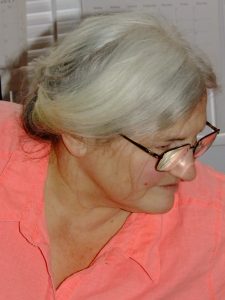 Lisa Morriss-Andrews studied theatre arts, chemistry, French and Russian, and obtained her MAC in Research. Then she abandoned academics to write full-time. In 2006 she attended the Banff Mountain Writing Program (Banff Centre), and, in 2011, the Summer Literary Seminars: Vilnius, Lithuania. She has won local writing awards, an international online award and a number of scholarships over the years. Her work has appeared in the Louisiana Review, Phati’tude and online in the Agnes Etherington Art Centre’s exhibition: Telling Stories, Secret Lives. All of her unpublished novel manuscripts have placed in the semi-finals/finals of the Faulkner-Wisdom creative writing competitions.
Lisa Morriss-Andrews studied theatre arts, chemistry, French and Russian, and obtained her MAC in Research. Then she abandoned academics to write full-time. In 2006 she attended the Banff Mountain Writing Program (Banff Centre), and, in 2011, the Summer Literary Seminars: Vilnius, Lithuania. She has won local writing awards, an international online award and a number of scholarships over the years. Her work has appeared in the Louisiana Review, Phati’tude and online in the Agnes Etherington Art Centre’s exhibition: Telling Stories, Secret Lives. All of her unpublished novel manuscripts have placed in the semi-finals/finals of the Faulkner-Wisdom creative writing competitions.